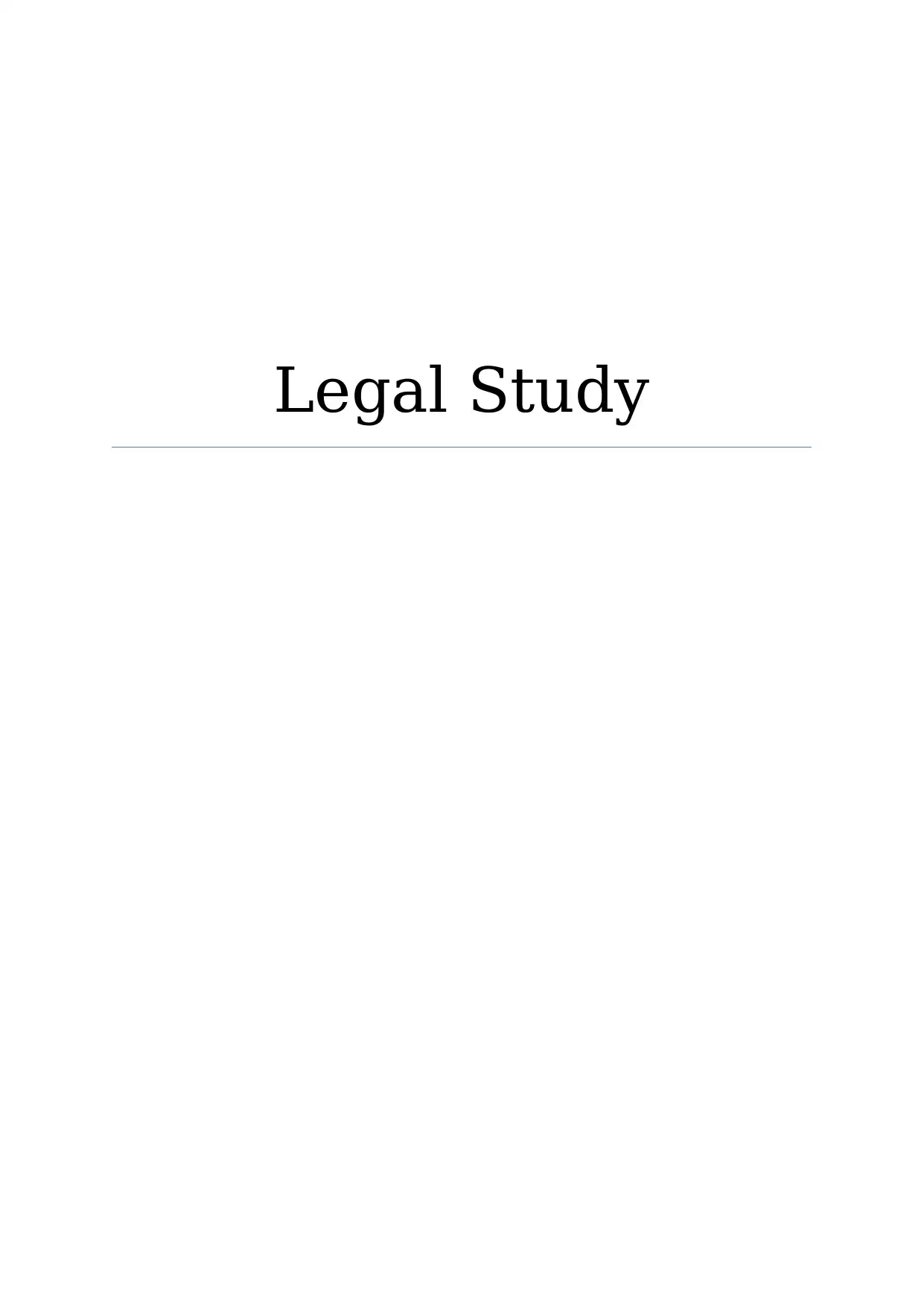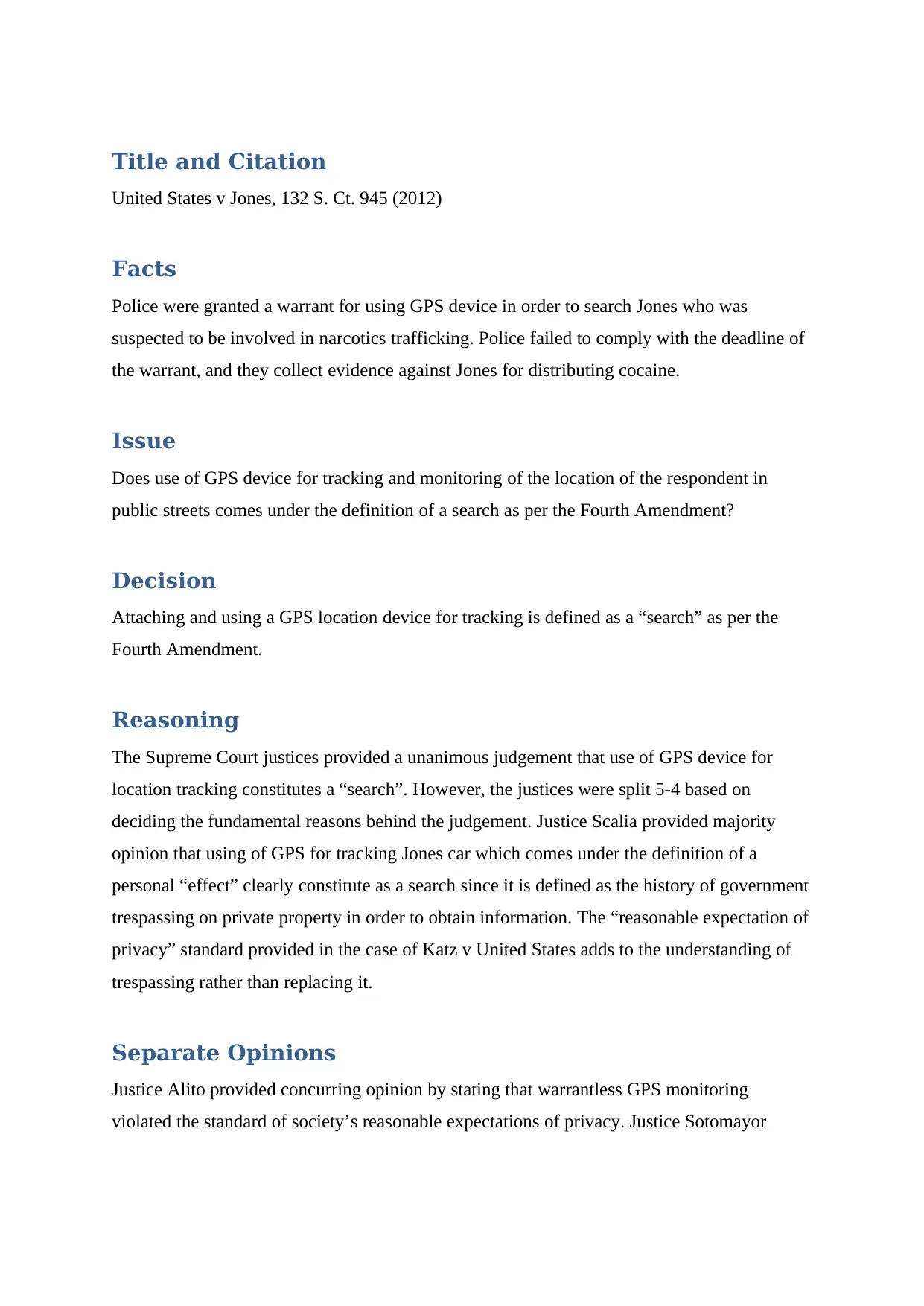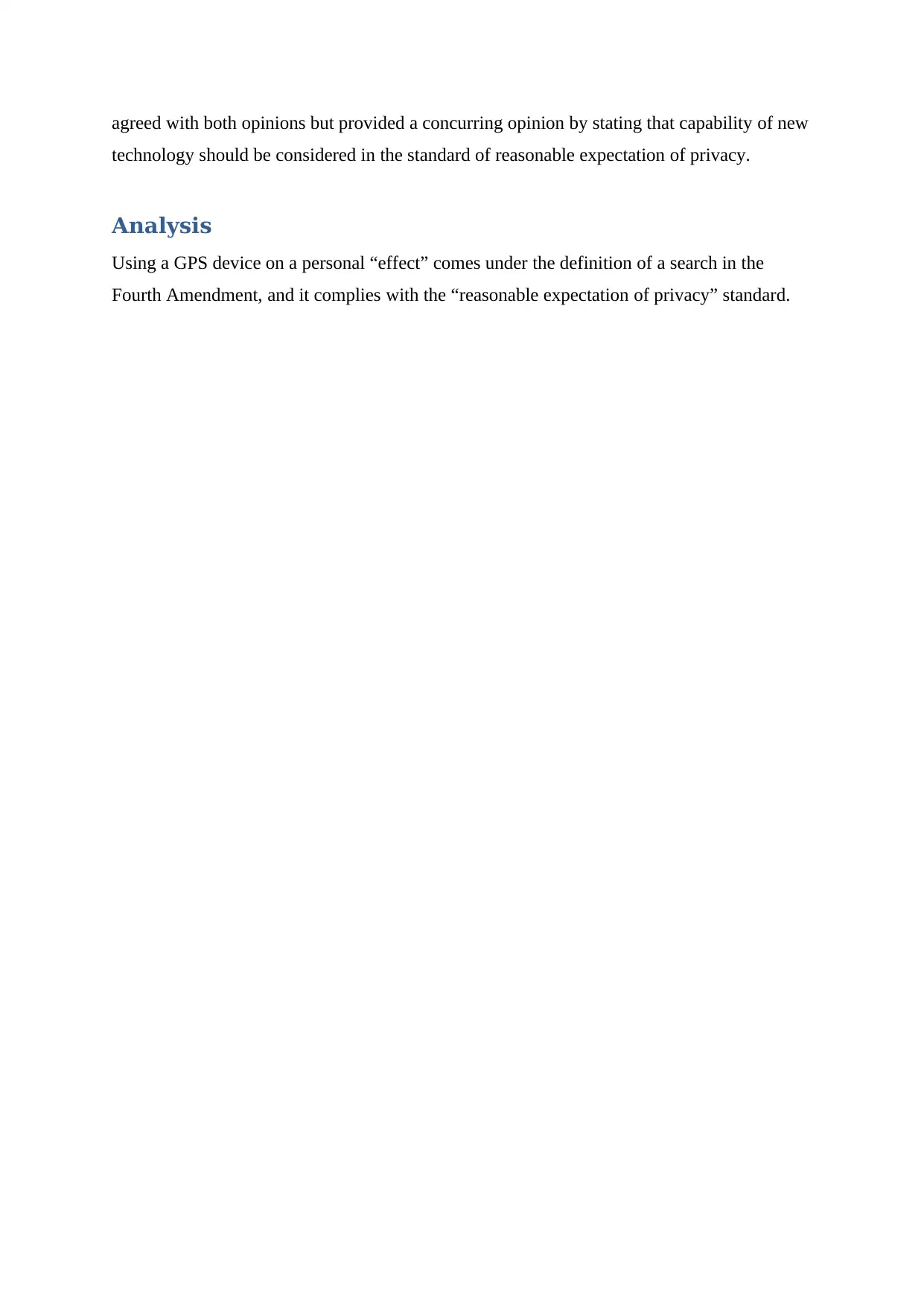The Fourth Amendment and GPS Tracking: A Legal Analysis of Jones
VerifiedAdded on 2021/04/16
|3
|325
|349
Case Study
AI Summary
This assignment provides a detailed legal analysis of the United States v. Jones case (2012), which involved the use of a GPS device for tracking a suspect. The analysis covers the facts of the case, the legal issues, and the court's decision. The Supreme Court unanimously ruled that using a GPS device for tracking constitutes a “search” under the Fourth Amendment. The majority opinion, written by Justice Scalia, focused on the concept of trespass, while Justice Alito's concurring opinion emphasized the violation of reasonable expectations of privacy. Justice Sotomayor's concurring opinion highlighted the importance of considering new technologies in privacy standards. The assignment also examines the implications of this ruling on privacy rights and search and seizure, offering a comprehensive understanding of the case's impact.
1 out of 3










![[object Object]](/_next/static/media/star-bottom.7253800d.svg)